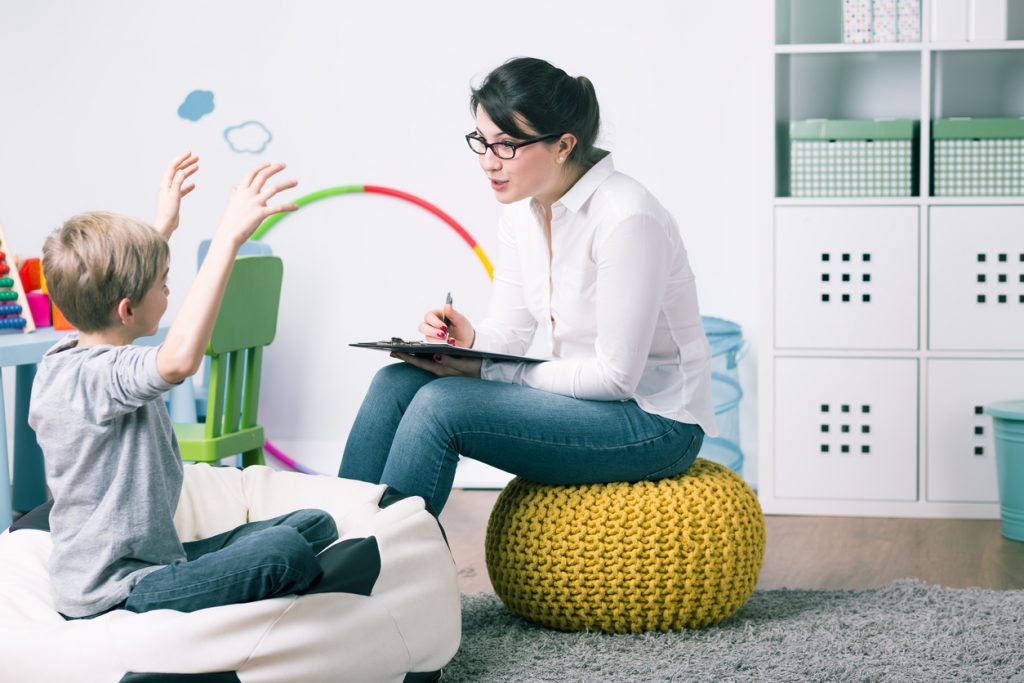Short Answer: Attention Deficit/Hyperactivity Disorder, or ADHD, is a fairly common behavioral disorder. What is ADHD? Kids with ADHD have trouble focusing; they are also hyperactive and can act impulsively.
Most young children are curious, active and easily distracted. They love to move and may have difficulty sitting still. But once a child enters elementary school, they tend to learn how to settle into their classroom routines.
If, however, your child is one of the 10% of school-aged children affected by ADHD, they may not “settle into the routine”. You may notice your child has continued difficulty focusing at home, at school and in their activities.
They may understand what is expected of them, but have trouble following through because they can’t pay attention to details or sit still long enough to finish a task.
What is ADHD?
ADHD is a common brain-based behavioral disorder that affects a person’s executive functioning skills. It may impact a child’s memory, concentration, attention, motivation, effort, impulsivity, social skills, hyperactivity, organization and their ability to learn from their mistakes.
What Causes ADHD?
There is no single known cause for Attention Deficit/Hyperactivity Disorder. You may have heard that ADHD is the result of poor parenting, too much sugar, vaccinations, etc. but no research to date validates this.
There is definitely a genetic component; most children with ADHD have a parent or other family member who also displays symptoms of the disorder. Boys are also about three times more likely than girls to be diagnosed, though no one really knows why. Other risk factors include smoking during pregnancy, premature delivery, very low birth weight or a brain injury at birth.
What ADHD Symptoms Should I Look For?
ADHD can look very different from one child to another, but there are some similarities. Doctors identify three main types of ADHD – inattentive, hyperactive, and combination. To really answer the question “what is ADHD”, a good place to start is by understanding the symptoms.
Inattentive ADHD looks like distraction.
Symptoms include:
- Lack of attention to details. Does your child make careless mistakes?
- Trouble staying focused. Is your child easily distracted?
- Listening problems. Does it seem like your child isn’t paying attention? (Be sure to get their hearing checked, some children seem like they are not listening because they have an undiagnosed hearing problem)
- Difficulty completing tasks. Does your child get sidetracked and fail to complete their work?
- Problems organizing belongings. Is your child excessively messy? Do they often lose things?
- Avoiding tasks that require sustained mental effort. Does your child procrastinate to avoid homework?
- Does your child forget instructions, homework assignments and other important information?
Hyperactive ADHD looks like excessive movement.
Symptoms include:
- Does your child tap, fidget or squirm in their seat?
- Inability to remain seated. Does your child get up and wander around or run and climb when they shouldn’t?
- Inability to play quietly. Does your child make noise all the time?
- Does your child interrupt, blurt out answers or act without thinking?
- Difficulty waiting. Does your child have trouble waiting or taking their turn?
Combination ADHD displays both inattentive and hyperactive behaviors.
To avoid making a misdiagnosis, your doctor may also ask:
- Has your child displayed symptoms for over 6 months?
- Is your child’s behavior more extreme than that of other children of the same age?
- Does your child display the behavior in at least two settings? (For example, at home, at school or in other activities?)
- Could the behavior be related to a stressful event such as a move, divorce or illness in the family?
- Could the behavior be explained by another mental disorder, including a learning disability or mood or anxiety disorder?

What Should I Do If I Think My Child Has ADHD?
First off, most experts agree that it is difficult to be sure a child has ADHD until they are 6 or 7 years old. Many of the telltale behaviors (short attention span, impulsivity) are normal in preschoolers. Your child may simply “grow out of it”. But if you suspect your child has ADHD, even if they are a little younger than 6, you’ll want to have them evaluated by a professional.
It’s probably best to start with your child’s primary doctor, so they can do some preliminary testing to rule out any causes other than ADHD, like hearing loss, vision problems, etc. If there are no physical conditions at play, and your child’s doctor is experienced in completing ADHD tests, he or she can make the diagnosis themselves. Or, your doctor may refer you to an ADHD specialist, such as a developmental pediatrician, neurologist, child psychiatrist, psychologist, or counselor.
Evaluating a child for ADHD is not an exact science. Lots of kids have trouble sitting still and focusing, but it doesn’t mean they have a disorder. It’s also possible that your child may have ADHD and some other issue occurring simultaneously; like a learning disability, or anxiety. About a third of all children with ADHD have a coexisting problem. The person completing the evaluation will consider all of this during their assessment. They will also ask questions to the adults in your child’s life to understand how they behave in different settings.
How Can I “Fix” It?
Children that have Attention Deficit/Hyperactivity Disorder are not “broken”, try not to think about it that way. While there is no real cure for ADHD, it can be effectively treated and managed. Treatment may be behavioral, medicinal, or a combination of the two. ADHD treatment options include:
Behavioral Therapy, including:
- Giving them clear, simple directions.
- Creating clear, achievable goals.
- Setting up a system of rewards and consequences.
- Establishing a consistent routine with a written schedule and reminders.
- Helping a child organize their desk, backpack and belongings.
- Avoiding distractions at school and while doing homework.
- Offering limited choices so your child is not overwhelmed.
- Redirecting inappropriate behavior.
- Using effective discipline tactics such as time-outs or removing privileges instead of yelling or spanking.
- Helping your child to find a talent, sport or school subject where they excel to bolster their self-esteem.
ADHD Medications, including:
- Stimulants, such as Adderall, Dexedrine, Focalin or Ritalin.
- Nonstimulants, such as Strattera, Kapvay or Intuniv.
- Antidepressants, such as Nortriptyline, Bupropion or an SSRI.
- A combination of any of these.
What ADHD Resources Are Available?
If your child is diagnosed with ADHD, be aware that the Individuals with Disabilities in Education Act (IDEA) and Section 504, an anti-discrimination law, make it possible for your child to receive school accommodations that can help them to be more successful in the classroom (and in life). Educate yourself, learn what resources are available, and talk to your child’s teachers.
What is ADHD – To learn more, visit:
- CHADD – The National Resource Center For ADHD
- The American Academy Of Child And Adolescent Psychiatry – ADHD Resource Center
- ADDitude – ADHD Parenting Skills
- ADHD Together – Resource
With the right treatment plan, Children with ADHD can go on to be very successful in school, work and in their personal lives. Work with your child’s healthcare provider to monitor and adjust their treatment plan as needed.












